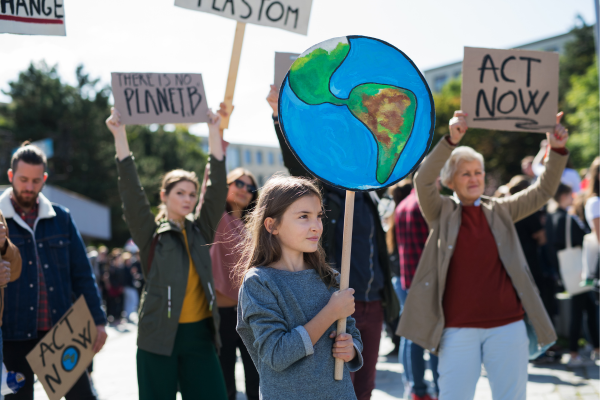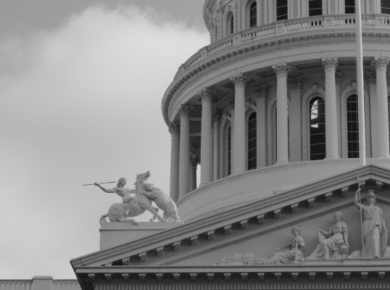Table of Contents
From climate change to education access, healthcare affordability to digital rights — the systems that govern our world are shaped by decisions made through public policy. These decisions don’t just affect one country. In today’s interconnected world, what happens in one corner of the globe can influence lives everywhere.
As global citizens, we are all affected by the policies that define our collective future and can definitely help shaping them. But what exactly is public policy, and why is it so important to understand it now more than ever?
Let’s explore.
What Is Public Policy?
Public policy is the backbone of how societies function. It refers to the strategies, laws, regulations, and decisions made by governments to address issues that affect the public. Whether it’s allocating budgets, creating safety regulations, or launching public health initiatives, public policy is what turns political goals into tangible actions.
Different types of public policies serve different purposes:
-
Distributive policies provide public goods and services, like transportation or education funding.
-
Regulatory policies place limits or conditions on activities, such as environmental laws or data privacy rules.
-
Redistributive policies aim to reduce inequalities by reallocating resources, such as through progressive taxation or social welfare programs.
Public policy is crafted and implemented not only by elected officials, but also by advisors, analysts, advocacy groups, researchers, and even ordinary citizens through activism, voting, and community engagement.
What Is a Global Citizen?
In our time, being a global citizen isn’t optional — it’s a reality. From the food we eat to the news we consume, our lives are constantly shaped by global systems. Borders may define nations, but our challenges — and solutions — are shared.
Traits of Global Citizens
-
Curious about global issues like climate change, poverty, or migration
-
Respectful of different cultures, perspectives, and ways of life
-
Committed to social justice, equity, and sustainability
-
Engaged in civic action — whether by voting, volunteering, or advocacy
-
Willing to challenge systems of inequality or environmental harm
Global citizens don’t need to be diplomats or policy experts. Simply caring about issues like climate change, human rights, education, and global health means you are already playing a role. And understanding public policy gives that role even more power and purpose.
How Is Public Policy Made?
Understanding public policy also means understanding how it comes to life. It’s not a single event, but a process — one that involves multiple steps, stakeholders, and decisions along the way.
Here’s how public policy is typically created:
-
Agenda Setting – A problem or need is identified, often through public demand, media attention, or research.
-
Policy Formulation – Experts, lawmakers, and interest groups explore possible solutions and draft proposals.
-
Policy Adoption – Decision-makers (like legislatures or executives) formally approve a policy through legislation or regulation.
-
Implementation – Government agencies and institutions put the policy into action on the ground.
-
Evaluation – Policies are assessed for effectiveness and may be adjusted or replaced based on outcomes and feedback.
This cycle ensures that policies are responsive to current needs — although the pace and effectiveness can vary greatly depending on political will, resources, and public engagement.
Why Does Public Policy Matter for Global Citizens?
In today’s interconnected world, public policy doesn’t stop at national borders. Decisions made by one government can shape economies, environments, health systems, and digital spaces across the globe. For global citizens — individuals who recognize their role in a shared international community — understanding public policy is essential.
Public policy is how societies coordinate responses to the world’s most pressing challenges. From climate agreements that unite nations in cutting emissions, to global health initiatives that organize vaccine distribution, to digital privacy laws that set standards across regions — policy is the mechanism for collective action.
Here’s why it matters:
-
Shared Challenges Require Shared Solutions: Issues like climate change, pandemics, cybersecurity, and migration are complex and cross-border. Public policy enables countries to collaborate, negotiate, and act together.
-
Cross-Border Impact: A regulation in one country can influence global trade, technology practices, or environmental outcomes. Whether it’s a data law in the EU or a public health policy in the U.S., the ripple effects are real.
-
Responsibility and Agency: Global citizens understand that their choices — how they vote, what they support, what they consume — contribute to broader systems. Engaging with policy allows for more informed, ethical participation in those systems.
-
Opportunities to Influence: Social movements, international organizations, and digital platforms have empowered individuals to engage with and shape policy like never before.
Whether you’re advocating for sustainability, supporting human rights, or contributing to educational access, your efforts are often tied to policy. Public policy is no longer just a national tool but a global language for problem-solving. And as a global citizen, it’s a language you can and should speak.
How You Can Engage With Public Policy
You don’t need to be a policymaker to influence policy. There are many ways to engage and make your voice count.
✅ Request information on BAU's programs TODAY!
Start by staying informed. Follow news sources, podcasts, and organizations that break down complex policy issues. Read about how governments are tackling challenges you care about.
Get involved in your community. Attend local meetings, participate in forums, or join groups working on issues like education, climate, or public health.
Use your voice. Whether it’s through social media, petitions, or conversations with friends and family, raising awareness is a form of activism.
Support advocacy organizations. NGOs, student groups, and nonprofits often provide opportunities for volunteering, campaigning, or learning more about policy-making.
And if you’re thinking long-term, consider a career in public administration, international relations, or policy analysis — fields where you can directly influence how societies evolve.
Public Policy in the Digital Age
Technology has radically transformed how policies are created, communicated, and enforced. Today’s digital tools allow for more participatory governance, data-informed decisions, and real-time feedback from the public.
Governments increasingly use big data and AI to shape evidence-based policies — for example, tracking public health trends or designing more efficient public transport systems.
At the same time, digital activism has empowered individuals and communities to organize and influence public discourse on an unprecedented scale. But this digital shift also brings risks — such as surveillance, misinformation, and unequal access — which require smart, ethical policymaking.
As global citizens, staying engaged in digital policy debates — from internet freedom to cybersecurity — is essential for protecting democratic values in the tech-driven future.
How to Work in Public Policy: Turning Awareness into Impact
Want to go a step further? If you’re passionate about shaping the systems that govern our world, you can turn that interest into a meaningful career. Public policy isn’t just for politicians — it’s a field where data, strategy, and civic responsibility meet.
There are many paths to becoming a decision-maker in the policy world. For example, you could:
-
Work in government or public administration, helping design and implement policy at the local, national, or international level
-
Join an international organization like the UN, World Bank, or WHO to contribute to global development and coordination
-
Contribute through NGOs or advocacy groups focused on education, health, sustainability, or human rights
-
Become a policy analyst or advisor, using research and data to guide public decisions
-
Leverage data science and technology to make policies more informed, efficient, and equitable
To succeed in these roles, you’ll need a mix of analytical skills, real-world understanding, and a global mindset.
🎓 Bay Atlantic University’s MS in Data Science and Public Policy is designed for exactly that. The program combines:
-
In-depth policy and management training
-
Hands-on experience with data tools and analysis
-
A guaranteed remote internship to build real-world skills
-
Access to global policy networks in Washington, D.C.
If you’re ready to not just understand policy, but shape it — this is where you start.
Conclusion
Public policy is not abstract. It’s the framework that shapes your rights, your opportunities, and your future — wherever you live.
As global citizens, we are connected by the policies that govern not just our countries, but our shared planet. Understanding how these policies are made, and why they matter, is the first step toward becoming not just aware of the world — but actively shaping it for the better.
Because when policy works for people, progress follows. And in an age of global interdependence, your voice in the policy process has never mattered more.
FAQ
What are some examples of impactful public policy?
Free education initiatives, environmental protection laws, and international trade agreements are all public policies that shape everyday life.
Who makes public policy decisions?
While governments lead, public policy also involves advisors, NGOs, community leaders, researchers, and even citizens who raise their voices.
What’s the connection between public policy and global citizenship?
Global citizens are impacted by — and can influence — public policy. Their awareness and advocacy help shape policies that address global challenges.
Is it possible to get involved in policy-making without a political background?
Yes. Civic participation, advocacy, volunteering, or pursuing education in policy-related fields are all ways to contribute meaningfully.
How can I build a career in public policy?
There are many ways to work in policy — from becoming a government analyst or nonprofit advocate to joining international organizations or think tanks. Today’s most impactful policy professionals also use data to drive decision-making.
Programs like Bay Atlantic University’s MS in Data Science and Public Policy prepare students with the skills needed to analyze complex issues, influence policy outcomes, and make a meaningful impact at both national and global levels.













